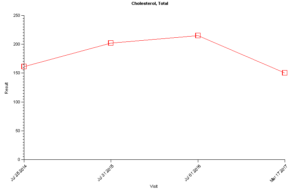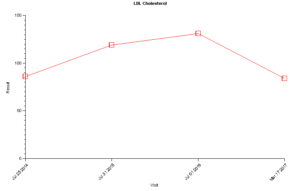The best kind of medicine

Benjamin Franklin famously said “rest and fasting are the best kinds of medicine.” Hundreds of years before him, the Greek philosopher Plato claimed to fast for “mental clarity and efficiency.” So what are these guys talking about? Can something as simple as going a few hours/days without food really prove beneficial? Let’s take a closer look at some of the results and benefits I’ve experienced via intermittent fasting over the past 2 years:
Mental
There’s a powerful freedom that comes with the ability to not eat for longer periods of time. As the stoic philosopher Seneca pointed out, fasting is a challenge that will sharpen your willpower; ultimately, it may even help you suppress/internalize feelings beyond hunger such as stress, fear, and anxiety. Fasting can do more than free you from internal desires—it can literally free up your day. It’s literally one less thing you have to fit into your busy day. In fact, when you try a more prolonged fast, you’ll undoubtedly feel bored in the evening or throughout the day. You just don’t realize how much of your time is actually spent planning, preparing, and consuming meals! The nice thing about IF is that it doesn’t have to be inconvenient or challenging; I find it particularly useful to throw in a fasting day when I forget my lunch or someone sponsors a pizza lunch at work.
There’s another side of the mental benefits of fasting: improved mental clarity. This may seem counter-intuitive if you’ve never intentionally fasted before, as most people correlate missing/skipping meals with being cranky or “hangry.” This is typically true for the first few fasting days, especially if you are not mentally prepared. But get through you first few fasts and something interesting happens–not only does fasting become easier, you start to feel a sense of mental clarity and improved focus.
Weight and Body Composition
Although IF is an effective tool for weight loss, that doesn’t have to be the goal. In fact, it is explicitly not my goal to lose any more weight. In a typical 24 hr fast body weight is maintained when you account for fluctuations in water weight. With prolonged fasting >24 hrs, body weight will drop quite a bit more, but shouldn’t be more than about 1 pound per fasted day after accounting for water weight. On the flip side, if you are trying to lose weight regular IF is an excellent way to do so. If you could fast for 24-36 hrs per week and lose an average of 1 pound per week, most reasonable weight loss goals are within reach. Check out Dr. Fung’s excellent book if this applies to you.
For those of you who aren’t interested in losing much weight–not to mention strength or endurance–fasted weight training can be an excellent way to not just get ripped, but actually get stronger. We could debate the physiology of how this is possible, but if you don’t believe me, check out Lean Gains and see for yourself (I’m not a fan of the guy who runs the site, but the results speak for themselves). As we explored in an earlier post, IF has the unique ability to accelerate fat burning due to the physiology of energy storage. Fat is your body’s preferential fuel source in “lean” times; by self-imposing this lean times via IF you can take advantage of this fact and start to “lean out.” I know this has worked for me as I have seen definite improvements in body composition and appearance since starting IF without any increase in frequency or intensity of exercise.
Blood pressure
Despite being in pretty good shape and having a normal BMI, I have had high blood pressure for years. It always seemed a bit weird to feel healthy yet have to take a blood pressure pill every day. But I just chalked it up to genetics or family history and took a low-dose anti-hypertensive (lisinopril) for years. When I started the low-carb “Paleo” lifestyle 7 years ago I lost about 10-15 pounds and was able to reduce my dose to just 10mg per day, but could never get rid of it completely. But within a few weeks of my IF experience I came off of it entirely and to my surprise, my readings were fine. I still check it regularly and do not advise that anyone change medication doses without their doctor’s permission…unless they happen to be their own doctor!
Cholesterol
Cholesterol may be one of the most controversial topics in medicine today. If you just get your info from the friendly neighborhood doctor or the health section of a mainstream news publication you might not be aware of the complete lack (or at least inconsistency) of data linking cholesterol to heart disease. You might also have been lead to believe that you need to be on a statin (Lipitor) just because you have high cholesterol. If so, I’d recommend you read/listen to someone who hasn’t either been brainwashed or paid by the drug companies and see that cholesterol isn’t the threat its made out to be. But I digress…


Let’s set aside for a minute the importance of cholesterol and answer the question that may be on your minds: will fasting help your cholesterol? The short answer is that results will vary. But in my case fasting seems to have helped dramatically. Most doctors and cardiologists I have shown this data to assume that I took a statin or (more laughably) ate less fat and cholesterol. This couldn’t be further from the truth. I still eat a diet with 60-70% of total calories from fat and a statin has never touched my lips (and never will…unless I have a heart attack, where it has been shown to yield a small survival advantage in men). The only change was adoption of intermittent fasting. I plan to keep tracking these markers and recognize that there are always confounding variables. Furthermore, others have demonstrated that fasting may actually increase cholesterol due to negative feedback and homeostatic mechanisms.
Again, I am sure that my results cannot be extrapolated to everyone. In fact, a recent study by a team I actually trust has shown that IF did not significantly improve a battery of biomarkers including cholesterol. But if I had “high” cholesterol and if I was actually concerned about it, and if a doctor I trusted really wanted me to go on a statin, I would try a low carb / high fat diet with intermittent fasting first.
Conclusions
Intermittent fasting is not a magic bullet and will not work for everyone. But compared to the many, varied and unusual dietary strategies you may have tried in the past, I’m confident that this is the simplest one. You don’t have to worry about counting carbs or keep asking yourself “Is this paleo?” You just have to ask yourself “Is this food?” and “Can I live without it for a while?” At a minimum, you’ll learn a little about yourself–your willpower and weaknesses–and you may be a better person for it. Smarter men than I certainly thought so.
n.b. If cholesterol is a major issue for you, I sincerely encourage you to do your own research in this area. The single best resource I would point you towards is a one hour podcast by Dr David Diamond. If this is “over your head,” check out this book by Jimmy Moore.